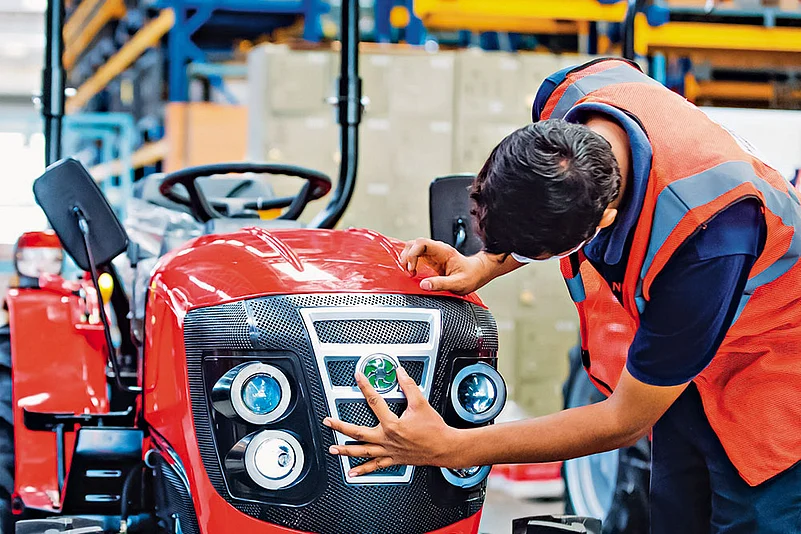For over five decades, VST Tillers Tractors Ltd. has led India’s agricultural transformation. Established in 1967, the company pioneered small farm mechanization by introducing power tillers tailored to India’s fragmented landholdings. In 1985, it became the first Indian company to manufacture 4WD compact tractors designed for affordability, terrain adaptability, and ease of use. Today, with a presence in over 40 countries, VST offers a robust portfolio—tractors, tillers, engines, reapers, components, and implements—redefining farming through smart, sustainable, and accessible mechanization.
Mr. Antony Cherukara, CEO of VST, shares his mission: to empower small and marginal farmers through a Fast, Frugal, and Future-Ready approach, bringing global innovation with grassroots relevance.
Why is compact mechanization crucial for India?
Over 85% of Indian farmers operate on less than two acres. Large machines are impractical. Compact equipment is ideal for small plots, hilly terrain, and narrow pathways—enabling timely farm operations, reducing labor dependency, and boosting productivity in a scalable, sustainable manner.
What makes VST’s solutions ideal for smallholders?
VST machines are frugally engineered—fuel-efficient, cost-effective, easy to maintain, and modular. One unit can handle multiple attachments across crops. Whether it’s paddy, horticulture, or sugarcane, VST machines are light yet powerful—reaching terrains where larger tractors can’t operate.
What’s in the innovation pipeline?
VST is developing smart and electric compact machines and already supplies drivetrains to a leading U.S. agri brand. Through global collaborations—including a JV with HTC Investments a.s (ZETOR brand owners)—VST is bringing high-tech tools to Indian farmers at accessible prices. Its upcoming product launches under the small farm mechanization line are expected to be transformational.
How does compact mechanization support sustainability?
Sustainability is core to VST’s design. Compact machines use less fuel, emit less, and support low-till farming, preserving soil health and reducing carbon footprints. Precision capabilities help reduce seed, water, and fertilizer usage. Manufacturing operations are also aligned with SDG-driven goals.
Can compact tools address rural labor shortages?
Yes. As labor grows costlier and less available, compact mechanization becomes a timely solution. VST’s tools help farmers execute critical operations efficiently and independently—not replacing labor but empowering farmer self-reliance.
What about balancing global quality with local needs?
Under the FIELDTRAC brand, VST exports to Europe, meeting stringent safety and emission norms. Yet every product is tested in Indian conditions—from Kerala’s wet fields to Maharashtra’s black soil—to ensure global-grade equipment addresses local agricultural realities.
How does VST approach product development?
Innovation at VST begins in the field, not the lab. With facilities in Hosur, Malur, and Mysore, and a global tech development center underway in Hosur, VST co-develops solutions directly with farmers—based on their real-world challenges.
How do you support dealer profitability?
VST follows a pull-based model—working closely with dealers instead of pushing unsold stock. Its emphasis is on education and demonstration over discounts, fostering a sustainable, profitable network focused on long-term value.
Conclusion
As agriculture evolves amid climate stress and rising costs, VST’s compact mechanization delivers a sustainable, inclusive path forward. Rooted in farmer-first innovation, VST isn’t just keeping pace—it’s shaping the future of Indian agriculture, one small farm at a time.


























